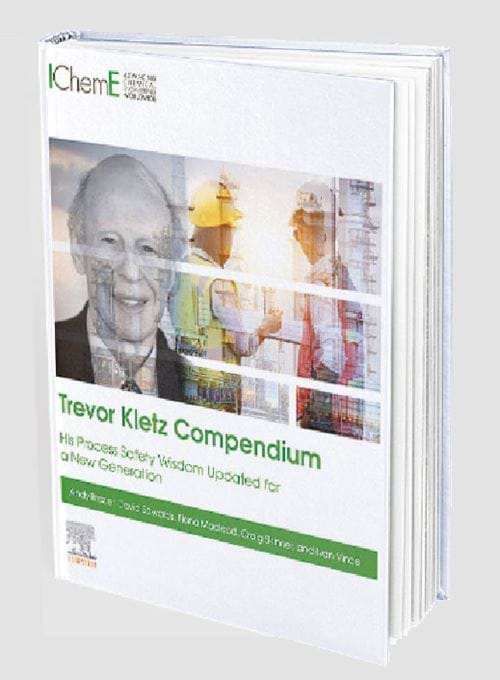Words from the Wise
David Edwards brings bite-sized process safety wisdom from Trevor Kletz to a new generation
TREVOR Kletz was one of the founders and leaders of process safety in thought and practice. He is arguably responsible for saving thousands of lives in his role as a safety adviser and renowned academic. Sadly, he died in 2013 but left behind a magnificent canon of publications, including 16 books and well over a hundred peer-reviewed papers on loss prevention and process safety. These communicate useful learning in a readable and understandable way and will guide safety people in their work in our industry – and beyond – long into the future.
A new compendium of his work collects Kletz’ wisdom on many aspects of process safety, augments it and presents it for a new audience. Over a series of three articles published throughout 2022, my co-authors and I will share some lessons from his work to help reinforce some community memory (and hopefully inspire you to buy the book and delve more deeply).
Kletz is perhaps best known for his clarity of thought around design, in particular, the inherently safer approach. This aims to eliminate or reduce hazards and/or exposure to them and/or the chance of their occurrence, by design. He distilled his thoughts into memorable statements:
- What you don’t have, can’t leak;
- People who are not there cannot be killed; and
- The more complicated a system becomes, the more opportunities there are for equipment failure and human error.
Inherently safer design has further cost benefits, because it often requires less equipment. Kletz often quoted Henry Ford, who said: “What you don’t fit costs you nothing and requires no maintenance”, while showing a slide of a Model T Ford, the world’s first affordable car because of its simple design.
Most people will say that this approach is common sense, and it is, but it took Kletz to cast this common sense into a practical philosophy.
The most infamous example of an inherently unsafe design, where the hazard was realised in a catastrophe that killed many thousands and injured over half a million people was the Bhopal gas disaster. The design and development of the Bhopal plant violated many of the principles of inherently safer design, such as unnecessarily storing a large quantity of a dangerous intermediate chemical and allowing many people to live too close to it.
Subsequent articles in TCE will address different aspects of Kletz’ wisdom but for now, putting his ideas together, we have a hierarchical safety philosophy, starting with the most beneficial:
1. Practise inherently safer design to eliminate or reduce hazards and accident causes and separate people from danger.
2. Then, use HAZAN and HAZOP to rigorously analyse what you want to do but also with an awareness of human error, in order to minimise the risk.
3. If the plant is built, manage the maintenance risk and control modifications.
4. If despite all of this, you do have an accident, investigate it, record and make the details easily accessible, learn the lessons and tell people all about it, so that we don’t do it again.
One of Kletz’ most well-known quotations is that “organisations have no memory” – so buy this book and let’s keep his wisdom alive for the new generation of safety practitioners.

Trevor Kletz Compendium: His Process Safety Wisdom Updated for a New Generation (Brazier, A, Edwards, D, Macleod, F, Skinner, C and Vince, I, ISBN: 9780128194478; Elsevier; 2021) is available at https://bit.ly/3HmwNJf
Read a review by Dame Judith Hackitt FIChemE, former Chair of the UK HSE at https://bit.ly/34PxmfW
Recent Editions
Catch up on the latest news, views and jobs from The Chemical Engineer. Below are the four latest issues. View a wider selection of the archive from within the Magazine section of this site.




